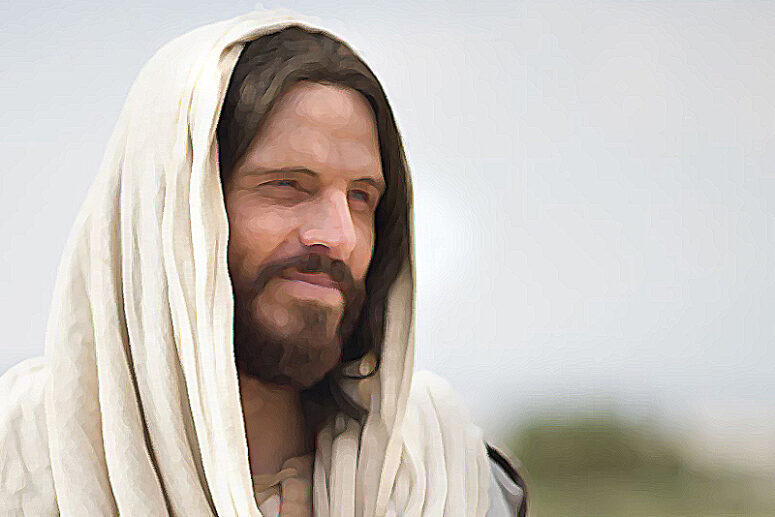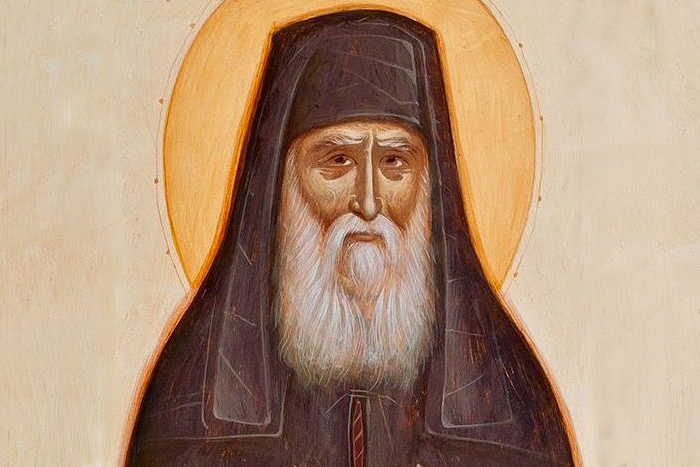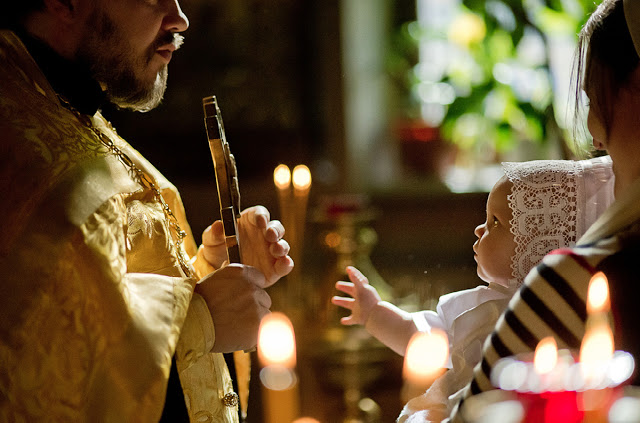Humor
When I first went to college, a church of my denomination sponsored a supper for us newcomers. As we ate, one guy made a cute remark. We laughed. The pastor looked at us severely and said: “Life is a serious matter. We should not make jokes about it.” We never went back.
I love humor, as long as it’s clean and not mean. I’ve found it the best way to deal with the absurdities of life, of which there are many. (OK, sometimes I overdo it. Ask my wife.) Whenever I’ve discovered that I couldn’t find humor in anything, couldn’t laugh, that signaled to me that something had gone badly wrong, and it was time to make some changes or get some help. And when I have found someone who rarely smiled, I have always figured something was wrong there.
Humor and Orthodoxy
So, imagine my discomfort to find that my patron Saint Basil the Great agreed with that grim pastor. Basil said that the Lord Jesus never laughed. In his eulogy for his sister Macrina, he  said that one of her greatest virtues was that she rarely smiled. He advised: “The Christian…ought not to laugh nor even to suffer laugh makers.” Not only that: Saint John Chrysostom agreed that the Lord never laughed or even smiled,
said that one of her greatest virtues was that she rarely smiled. He advised: “The Christian…ought not to laugh nor even to suffer laugh makers.” Not only that: Saint John Chrysostom agreed that the Lord never laughed or even smiled,  and said “This world is not a theater in which we can laugh.”
and said “This world is not a theater in which we can laugh.”
Oh dear. Basil has been my patron and guide for these thirty years. I respect and admire him and Chrysostom and the dear Macrina enormously.
So what do I do with this? I think that in this matter those two great Fathers and one dear Mother were wrong. (If you think I should be excommunicated or defrocked or burnt at the stake, please comment at the bottom.) I believe they probably were reflecting the cultural norms of the time. Of course, probably so am I.
But consider: Jesus Christ was fully human in all things except sin. Hebrews 2:17, 4:15 He ate and drank. He wept. He was frustrated and angry. He suffered and died. So why should we think He did not smile? Human beings smile and laugh.
However, I’ve read only one Orthodox source that dealt with the possibility that Jesus had a sense of humor, and the author thought maybe, but probably not. So maybe I’m on my own here.
Let’s get something straight. “Humorous” does not mean “not serious”. Perhaps this just reflects my intellectual shallowness, but I have heard many sobre sermons, read many solemn books – and today I can’t remember much from most of them. But I do remember the teaching of G.K. Chesterton, for example, or C.S. Lewis, or Father Thomas Hopko, who used a bit of engaging humor. I’ve found that most Orthodox have a good sense of humor – except they can be so solemn about their religion. In this Blog, I have purposely tried to counter this – for better or for worse is for you to say.
Now, am I wishing that Basil and Chrysostom had put a few funny lines in their Liturgies? Of course not. You’ll find this hard to believe, but I once attended a wedding ceremony in a certain church (not Orthodox!) best left nameless, where all through the ceremony the priest told jokes. It was dreadful beyond description. I left early so I wouldn’t have to talk to him.
Nor am I suggesting that the Lord Jesus just went for laughs like that priest I mentioned. Do I want Christ grinning out at us from His icons. No! Here’s a picture by some Protestant artist. I think it’s just short of sacrilegious.
laughs like that priest I mentioned. Do I want Christ grinning out at us from His icons. No! Here’s a picture by some Protestant artist. I think it’s just short of sacrilegious.
The Dry Humor of Jesus
My wife said “humor” is the wrong word here. Probably it is, but we both looked and couldn’t find a better one.
I don’t mean “ha ha” humor. I mean clever humor, humor often so dry, so nearly imperceptible that you might easily miss it, unless you try to imagine the situation and the intended effect of His words or actions. He used very subtle, mentally challenging humor. Sometimes He had almost a mischievous sense of humor, using impossible images and saying things that sounded absurd – often without explaining Himself. He was going for peoples’ reaction, trying to startle them (and us) into thinking and imagining.
Over the years I’ve found that when I can’t understand something the Lord Jesus says or does, I put a little twinkle in His eyes, and often what He meant and what He was “up to” seems to come clear. It doesn’t always work, but try it, and see what you think.
Outrageous images
“Why do you try to take a speck out of your brother’s eye when you’ve got a log in your own eye?” Matthew 7:3-5 He could have said simply “You’re a greater sinner than he is.” Why didn’t He?
“It is easier for a camel to go through the eye of a needle than for a rich man to get into heaven.” Matthew 19:24 I’ve read possible explanations for this. No matter, He chose to use this funny image.
Startling statements not explained,intended to challenge peoples’ thinking
What He said above flummoxed His disciples, because everybody knew riches were a sign of God’s favor. They asked “Then who can be saved”? Jesus gave them a non-answer: “With men it is impossible. With God all things are possible.” Put a little twinkle in His eye.
Jesus is invited to dinner by a “prominent Pharisee”. The Pharisee guests wanted nothing to do with what He had to say. So He leans over and says to His host: Don’t invite these people to dinner. 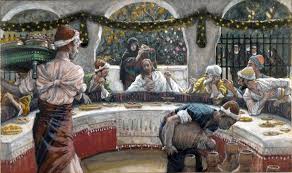 They’re only going to repay you. “Invite the poor, the crippled, the lame, the blind” who can’t repay you. Luke 14:13 His host surely stared at Him in disbelief – but it’s my party – and I suspect Jesus “deadpanned” it. Finally He added “You’ll be repaid at the resurrection…” That was not quite what His host had in mind!
They’re only going to repay you. “Invite the poor, the crippled, the lame, the blind” who can’t repay you. Luke 14:13 His host surely stared at Him in disbelief – but it’s my party – and I suspect Jesus “deadpanned” it. Finally He added “You’ll be repaid at the resurrection…” That was not quite what His host had in mind!
Astonishing actionswhich He used to playfully “tease” the disciples towards belief
Early in His ministry, Christ and the disciples were out on the sea by night. A storm came up. Jesus was asleep. The disciples wake 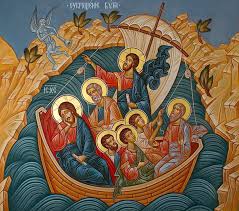 Him: “Master, don’t you care that we are perishing?” So He wakes and commands the winds and the waves: “Be still!” and they are! Imagine the disciples sitting there, mouths agape, awestruck. And He says to them, as if nothing much has happened, “Where is your faith?” Didn’t you know I could do that? He’s teasing them. Of course they didn’t know that! Not yet. You see: There’s a purpose in His humor. He’s leading them on to ask: “Who is this that wind and waves obey Him?” They would soon learn who He is. Matthew 8:23-27
Him: “Master, don’t you care that we are perishing?” So He wakes and commands the winds and the waves: “Be still!” and they are! Imagine the disciples sitting there, mouths agape, awestruck. And He says to them, as if nothing much has happened, “Where is your faith?” Didn’t you know I could do that? He’s teasing them. Of course they didn’t know that! Not yet. You see: There’s a purpose in His humor. He’s leading them on to ask: “Who is this that wind and waves obey Him?” They would soon learn who He is. Matthew 8:23-27
In last Sunday’s Gospel reading Mark 6, Matthew 14 five thousand men plus women and children have come out into the desert to hear Him. They’re enthralled and won’t leave. His disciples are in a panic. “Master, send them into town to buy food.”
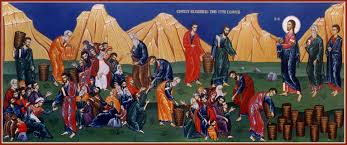
Again He teases them, “You give them something to eat.” Again try to imagine their reaction: “But…but… but… us? that’s crazy!” This time He didn’t leave them hanging. All the while “knowing what He would do”, He shows them how they can feed the multitudes: First bring their meagre gifts to Him, and He will multiply them. Today the world is still feeding on the work of the Apostles. Christ is still multiplying their gifts and ours – “thine own of thine own, we offer unto thee” – both material and spiritual, now beyond measure.
But now comes this Sunday and a “slapstick” story. Definition: “Slapstick is a style of humor involving exaggerated physical activity that exceeds the boundaries of normal physical comedy.” That’s exactly what we have here.
Jesus walks on water, but the Rock sinks.
Gospel Reading for the Ninth Sunday of Matthew: Matthew 14:22-34
Some of what follows here is paraphrased, with a few words of interpretation added.
Christ had fed the multitude and sent them home. He told the disciples to set out by boat for the other side of the Sea of Galilee, while He remained behind. He went up onto a mountain, as He often did, to pray.
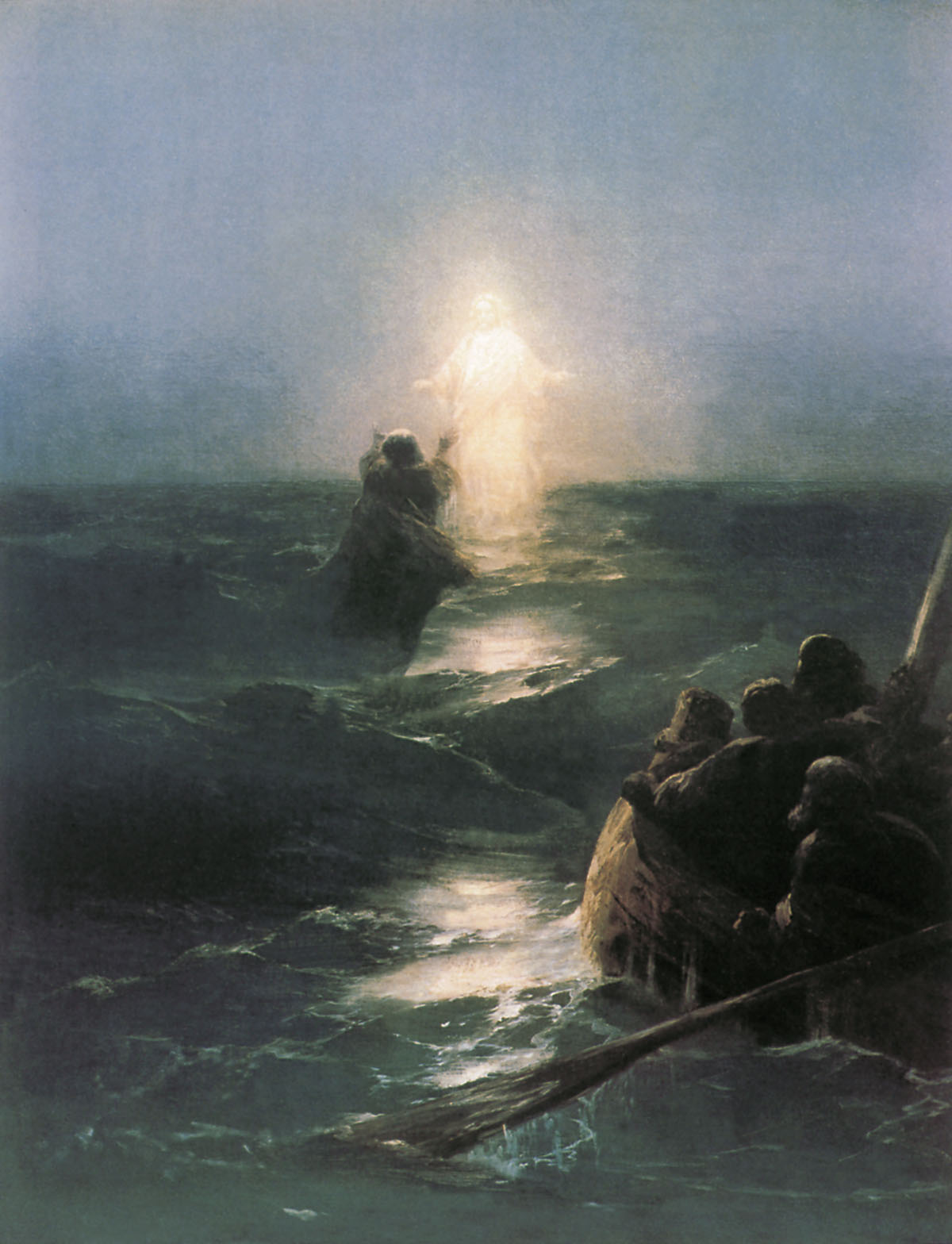
It is the fourth watch, the darkest part of the night just before dawn. The boat is out in the middle of the lake. The wind and the waves are up. The disciples see this figure walking on the sea, Mark’s Gospel says “as if to go past them”. Mark 65:48
As if to go past them?! He’s teasing them, playing games with them. I mean, what other possible explanation is there? That he’d decided to go for a 4 a.m. stroll on the waves and just happened, by chance, to walk past the boat?
Their natural reaction: Fright. What is it? a ghost? and they cry out, afraid. Then Jesus’ voice comes to them across the waters: “Take heart. It’s me. Don’t be afraid.” The disciples are doubtful, and Simon Peter (who, bless his heart, always has to say something) this time blurts out something crazy, but so full of trust: “Lord, if it is you tell me to come to you on the water”. I can’t help but think that the Lord, in the darkness, allowed Himself a quiet loving laugh as He says: Alright. “Come.” This is going to be fun.
Now, I’m sure you know that Christ gave Simon the name Peter. It means “Rock”.
So Peter in faith gets out of the boat and walks on the water towards the Lord across the waves! till suddenly he panics. You can tell he’s saying to himself: Wait! I can’t be doing this. People 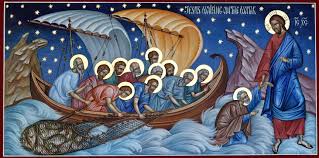 can’t walk on water! The Rock starts to sink, and thrashing about he cries out, “Lord, save me!” So Jesus walks over, stretches out His hand, catches Him, and right there with the two of them standing atop the Sea the Lord gently teases him: “O man of little faith, why did you doubt?” Peter, where’s you faith? Didn’t you know you could walk on water? Of course Peter didn’t know that! And then He walks His disciple across the water to the boat, they get in, the wind ceases and they arrive safely on the other side.
can’t walk on water! The Rock starts to sink, and thrashing about he cries out, “Lord, save me!” So Jesus walks over, stretches out His hand, catches Him, and right there with the two of them standing atop the Sea the Lord gently teases him: “O man of little faith, why did you doubt?” Peter, where’s you faith? Didn’t you know you could walk on water? Of course Peter didn’t know that! And then He walks His disciple across the water to the boat, they get in, the wind ceases and they arrive safely on the other side.
A slapstick story, but merely slapstick? No. Even this kind of humor can be used to make serious points, and this one like the sea is deep, with many profound symbols and images. Remember that Christ’s parables and actions often have double and triple layers of meaning.
For example, if you haven’t seen yourself in this story, read it again. We all are sailing across the sea of life, trying to reach the “other side”. When it’s dark and stormy Christ our God comes to us. At first we may not recognize it’s Him, and He frightens us. Even when we recognize His voice, still we’re not quite sure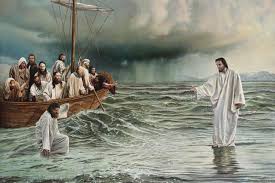 . But He finds a way to assure us: “Don’t be afraid”.
. But He finds a way to assure us: “Don’t be afraid”.
When He comes to us sometimes He plays little games with us to loosen us up, open us up to new seeming impossibilities. But if we put our faith in Him, Christ can allow us to “walk upon the waters”. If we begin to fear and lose faith, as we almost always do, and begin to sink, if we call on Him He will come and save us and lead us back to the boat.
The boat in which He has joined us is mankind, His Incarnation – but at the end of the story, the boat is also His Church which gets us safely to the “other side”.
As I say, we can approach His parables and stories from different angles, sometimes all at once. No problem. Don’t think like a modern Western literalist.
The last line is most important. When it was all over, those in the boat “worshiped Him saying, ‘Truly you are the Son of God’.” This is where He’s leading them. This the One who walks upon the sea, who rules the wind and the waves and the world – and rules us. It is through this scary wonderful process that we learn who this Man really is and to trust Him. “Truly you are the Son of God’.” *
- Personal testimony: When He first called me to ordination, I didn’t know it was Him. All I knew was that suddenly this thing was planted in my heart. I did not yet believe in Him, didn’t know Who He is. I wasn’t especially “religious”, knew very little about religion. I was scared even to speak in public. Whatever was happening, I thought I had to do it all by myself. It meant giving up what I had spent my college life preparing for. But by His grace, I jumped out of the boat, and when I’ve failed, as I have many times, He took my hand, and now sixty years later… I never could have imagined what He would do for me. Do I know who He is now? You know I do.
Many serious points in this story. Yes. But it’s also very funny.
So my advice:
Brothers and sisters, loosen up. Be joyful about your Faith, and don’t be afraid to show it. Despite the dark stormy state of the world, despite our sins and failings, we have good reason to be happy: “Fear not, little flock. It is your Father’s good pleasure to give you the Kingdom.” Luke 12:32 “Christ is risen from the dead, trampling down death by death, and upon those in the tombs bestowing life!”
G.K. Chesterton touched on this at the end of his book Orthodoxy (by which he meant not Eastern Orthodoxy but traditional Christianity):
“Joy, which was the small publicity of the pagan, is the gigantic secret of the Christian. And as I close this chaotic volume I open again the strange small book from which all Christianity came; and I am again haunted by a kind of confirmation. The tremendous figure which fills the Gospels towers in this respect, as in every other, above all the thinkers who ever thought themselves tall. His pathos was natural, almost casual. The Stoics, ancient and modern, were proud of concealing their tears. He never concealed His tears; He showed them plainly on His open face at any daily sight, such as the far sight of His native city.
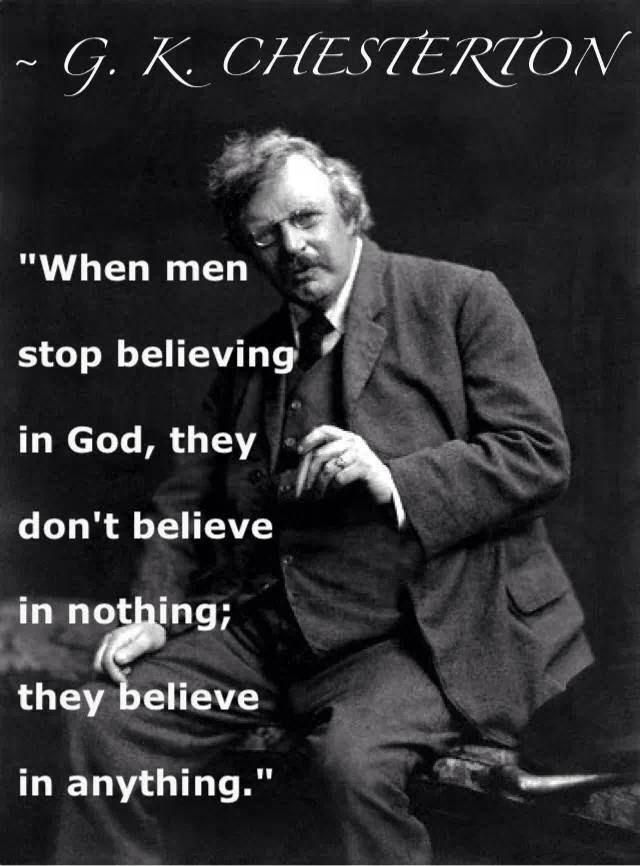 “Yet He concealed something. Solemn supermen and imperial diplomatists are proud of restraining their anger. He never restrained His anger. He flung furniture down the front steps of the Temple, and asked men how they expected to escape the damnation of Hell. Yet He restrained something. I say it with reverence; there was in that shattering personality a thread that must be called shyness. There was something that He hid from all men when He went up a mountain to pray. There was something that He covered constantly by abrupt silence or impetuous isolation. There was some one thing that was too great for God to show us when He walked upon our earth; and I have sometimes fancied that it was His mirth.”
“Yet He concealed something. Solemn supermen and imperial diplomatists are proud of restraining their anger. He never restrained His anger. He flung furniture down the front steps of the Temple, and asked men how they expected to escape the damnation of Hell. Yet He restrained something. I say it with reverence; there was in that shattering personality a thread that must be called shyness. There was something that He hid from all men when He went up a mountain to pray. There was something that He covered constantly by abrupt silence or impetuous isolation. There was some one thing that was too great for God to show us when He walked upon our earth; and I have sometimes fancied that it was His mirth.”
Source: https://frbillsorthodoxblog.com/2020/08/07/210-the-dry-humor-of-jesus-except-for-one-time/


